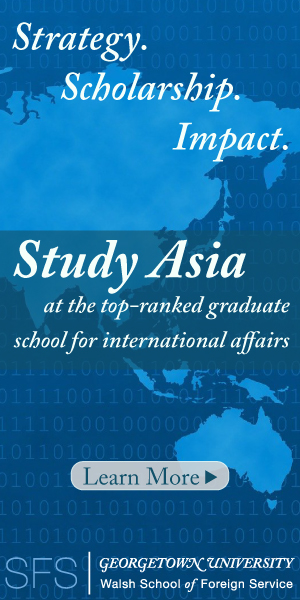| Welcome to the latest issue of Diplomat Brief. This week our top story explores the breakdown of China’s vaunted censorship network during the late November protests. We also have an interview with Pavin Chachavalpongpun, an exiled Thai academic who currently serves as associate professor at Kyoto University’s Center for Southeast Asian Studies, about Thailand’s lese majeste law and the role of the monarchy in politics. |
| Story of the week |  | Society How Zero COVID Protests Broke Through China’s Internet CensorshipWhat Happened: On November 26 and 27, protesters took to the streets in Shanghai. Small-scale marches, often involving labor or contract disputes, are actually not unheard of in China, but what happened next was truly rare: mirror protests, featuring the same slogans and protest tactics – notably holding up blank pieces of paper as a silent comment on censorship – spread across the country. That was made possible by an avalanche of posts spreading news of the protests on social media – taking advantage of a curious gap in China’s famously tight internet censorship apparatus. Our Focus: The protests – coordinated and shared online – represented a “breaking point of the information controls that have been put in place,” Jason Ng, the author of “Blocked on Weibo,” told The Diplomat. “You’re seeing opportunities for people to use the internet and mobilize.” To Anthony Saich, director of the Rajawali Foundation Institute for Asia at Harvard Kennedy School, the incident “shows just how hard it is to maintain the level of censorship, when a sudden event occurs. The young people are smart and know their way around social media to post materials.” What Comes Next: Even into early December, critical posts – including posts sharing “six demands” linked to the protests – were still visible on WeChat. But analysts worry that a crackdown may be coming, albeit belatedly. “All of the sudden the ground can shift under your feet, and posting about what you thought would have no consequences can cause you to be detained,” Ng said, reflecting on previous incidents. Manfred Elfstrom, a political science assistant professor at the University of British Columbia, also mentioned the potential for a wave of arrests after the initial protests: “It is not difficult to track down who has posted what in China. So, people are taking some risk in posting this kind of content. The question, I suppose, is how wide of a net authorities will end up casting in punishing people.” Read this story |
| Behind the News | INTERVIEW Pavin ChachavalpongpunPavin Chachavalpongpun, associate professor at Kyoto University’s Center for Southeast Asian Studies, on signs of support within Thailand for the abolition of the lese majeste law: “The growing number of cases is testament to the growing support for the abolition of the lese-majeste law. It has created a new environment in which Thais feel that they are not alone in confronting the ‘elephant in the room.’” Read the interview |
| This Week in Asia | Northeast Asia Xi Jinping Heads to Saudi ArabiaChina's President Xi Jinping will visit Saudi Arabia from December 7 to 10, finally reciprocating Crown Prince Mohammed bin Salman’s pre-pandemic trip to Beijing in 2019. Xi is also expected to attend a multilateral meeting of heads of state involving all the Gulf nations, a sign of China’s growing influence and involvement in the Middle East. Find out more | South Asia Bangladesh’s Opposition Plans Dhaka RallyThe Bangladesh National Party (BNP) plans to host a massive rally in the capital on December 10, the culmination of a months-long agitation. The BNP has sworn to ensure that Prime Minister Sheikh Hasina’s government is not in power to oversee the next elections. The capital is bracing for potential violence between rival political camps as the ruling Awami League has vowed to counter. Find out more | Southeast Asia Indonesia Passes New Criminal CodeIndonesia’s parliament this week passed its long-awaited but controversial new criminal code, which opponents say will mark a serious setback for the world’s third-largest democracy. Among its more controversial provisions are those penalizing sex before marriage and outlawing insults against the president and state institutions. The code has also preserved a ban on abortion, except in a narrow range of circumstances. The passage of the law, which will come into effect in three years’ time, was accompanied by protests across the country, and activists have vowed to keep up their pressure on President Joko Widodo’s administration. Find out more | Central Asia Putin Headed to KyrgyzstanRussia’s Vladimir Putin may be a pariah in much of the world now but not in Central Asia. On Friday, he’ll arrive in Kyrgyzstan for a meeting of the Eurasian Economic Union. Uzbek President Mirziyoyev will be coming too, although Tashkent is only an observer. Both might draw some protests: Putin over the war in Ukraine and Mirziyoyev over a recent border deal. Find out more |
| Visualizing APAC |  | Most Kazakhs and Kyrgyz believe joining the Russian-led Eurasian Economic Union has been good for their countries. Experts aren’t so sure. See the full picture |
| Word of the Week | Magazine Ketuanan MelayuMalay for “Malay supremacy,” a credo that has dominated Malaysian politics for decades – even after the UMNO’s stunning fall from power in 2018. Find out more |
|  |




